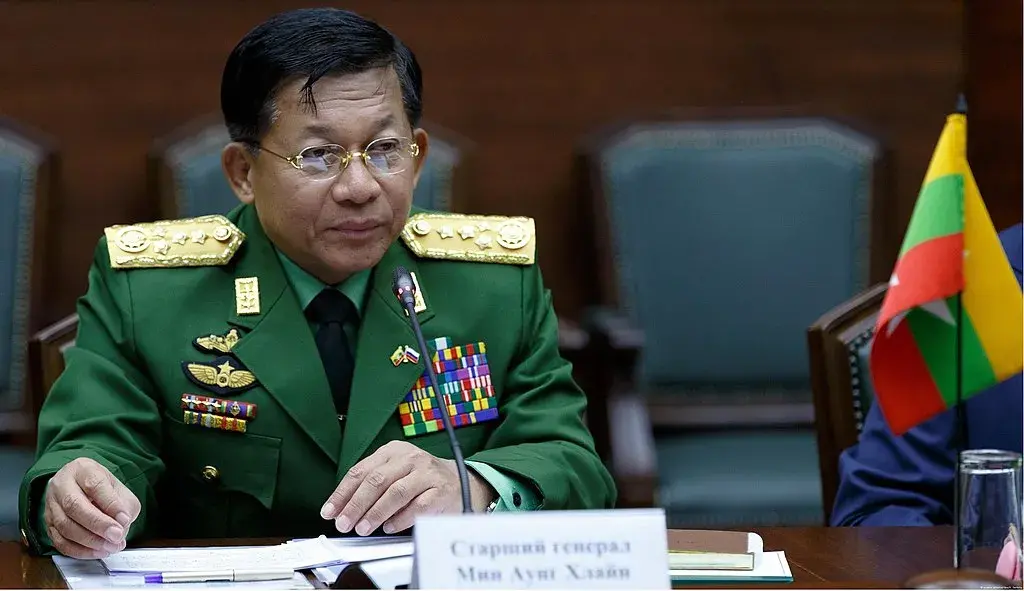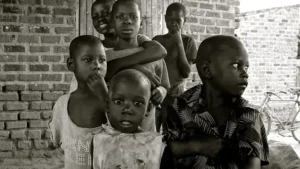The military rulers of Myanmar have prolonged the state of emergency for six more months, as they face a pro-democracy uprising that has tested their ability to govern.

Myanmar’s junta emergency rule, effective since its 2021 coup, was prolonged for another six months on Wednesday, as the military struggles to quell a violent, pro-democracy revolt that has challenged its governance.
The extension of emergency rule was necessary to carry out the tasks needed “to bring the nation to a normal state of stability and peace,” according to junta leader Min Aung Hlaing, who announced the decision on the military-run Myawaddy Telegram channel.
The junta is facing its toughest opposition since it first seized power in the former British colony in 1962, with a youth-led pro-democracy movement transforming into an armed resistance after a brutal suppression of protests and dissent following the coup.
The military has used heavy artillery and fighter jets to try to crush the militias allied with a shadow government and ethnic minority forces, some of which launched a joint attack in October that shocked the military and damaged its reputation on the battlefield.
On the anniversary of the coup, U.N. Secretary-General Antonio Guterres emphasized “the urgency of forging a path towards a democratic transition with a return to civilian rule,” U.N. spokesperson Stephane Dujarric said.
“An inclusive solution to this crisis requires conditions that allow the people of Myanmar to exercise their human rights freely and peacefully. The military’s campaign of violence targeting civilians and political repression must end, and those responsible be held to account,” Dujarric said.
About 2.3 million people have been displaced, according to the United Nations, while attempts by Myanmar’s Southeast Asian neighbours to start dialogue have made no headway, with the junta refusing to talk to what it calls “terrorists”.
The emergency rule extension came on the eve of the third anniversary of the military taking back power in the coup citing unresolved electoral fraud, in a sudden and unwelcome reversal of a decade of tentative democracy and economic reform.
The coup happened a few months after a sweeping election victory by then leader Aung San Suu Kyi’s ruling National League for Democracy (NLD), which had planned to change the constitution to remove the powerful military from politics and bring it under civilian control.
The military has pledged to hold an election, opens new tab and restore Myanmar to the quasi-civilian system it created, but has dissolved at least 40 parties, opens new tab and imprisoned Suu Kyi for 33 years, reduced to 27, on what her supporters say were fabricated charges.
Earlier on Wednesday it declared a relaxation of registration requirements for political parties, without giving a reason. It gave no timeframe for the election. Western countries have indicated they will not acknowledge the polls.
The parallel National Unity Government, which controls militias, on Wednesday issued a statement along with three ethnic minority rebel groups saying they were willing to negotiate with the military, on the condition that it relinquishes power and brings the armed forces under civilian control.
Richard Horsey, senior Myanmar adviser to Crisis Group, said the military’s weaknesses were revealed in recent months through its loss of soldiers and territory, with pressure mounting from within on coup leader Min Aung Hlaing.
“The military’s hold on power is more uncertain than at any time in the last 60 years,” he said.
“But it seems determined to fight on, and retains an enormous capacity for violence, attacking civilian populations and infrastructure in areas it has lost, using air power and long range artillery.”







